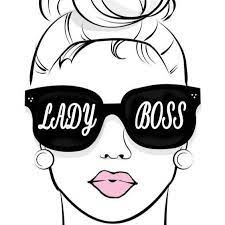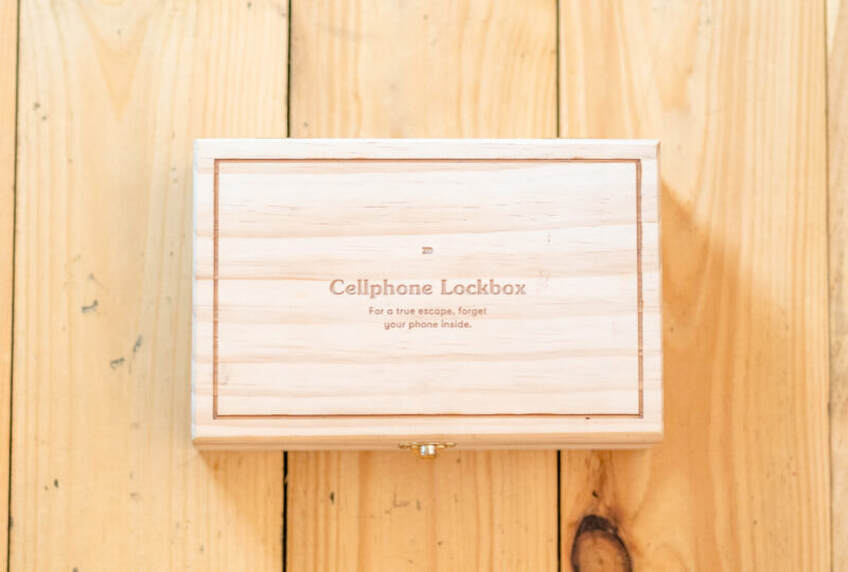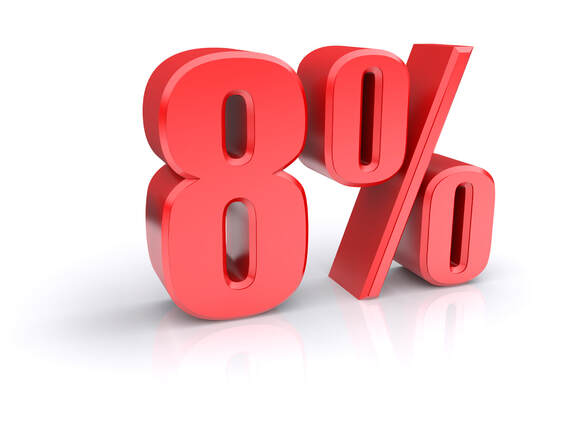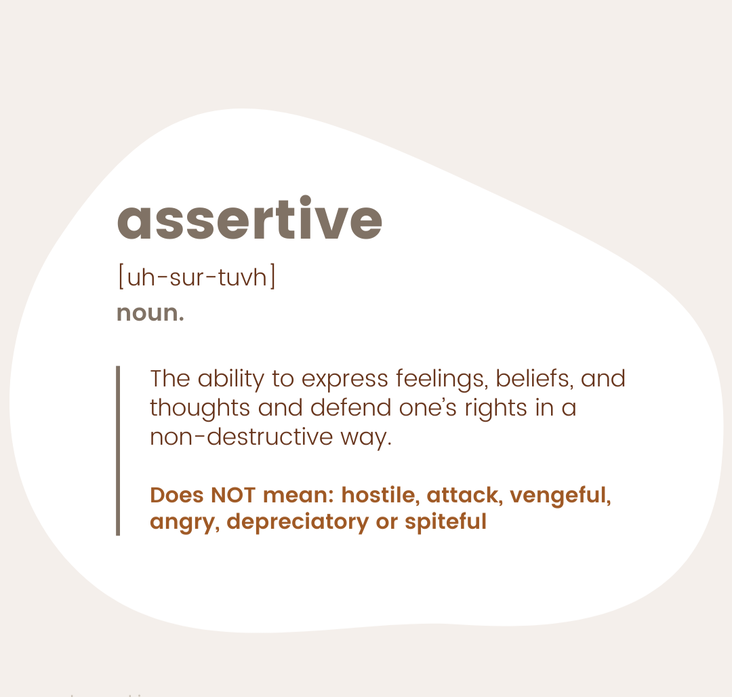|
In my private FB Group every Monday I share a Self-care check-in with my people.
Last Monday, just 3 days before my 42ND Birthday, the Self-care check-in really resonated with me. FOCUS: Notice the changes your body goes through without labeling them as good or bad. How can you better appreciate the miracle of your body? WOW. The public responses were amazing - and positive! The private responses and subsequent big, validated, emotions following were REAL. Body Dysmorphia is REAL. Many of us struggle with it and I think it's helpful to create a safe community where we can discuss, validate, and challenge ourselves. I decided to challenge myself by writing my body a letter. Dear Body, I’m writing this letter to express my deepest gratitude and admiration for all that you have endured and accomplished. As a 42-year-old cancer survivor, competitive equestrian, business owner, and mom, you have been the steadfast vessel through countless challenges and triumphs. First and foremost, I want to thank you for your incredible strength and resilience. From battling cancer and navigating the complexities of recovery, to overcoming COVID and continuing to chase my dreams, you have proven time and again that you are a warrior. Your ability to heal, adapt, and push through adversity is nothing short of extraordinary. Your endurance on the equestrian field, showing up for every ride, every competition, and every training session, speaks volumes about your power and grace. You have carried me through moments of victory and times of doubt, always pushing forward with determination and courage. As a business owner and mom, you juggle countless responsibilities with unwavering dedication. You handle the demands of running a business, managing a household, and raising a family with a level of grace and tenacity that I deeply admire. Your ability to balance these roles while maintaining your own well-being is a testament to your strength and versatility. Hosting summer parties and creating joyful memories for family and friends is another testament to your vitality and enthusiasm. You embrace these moments with an open heart and a generous spirit, bringing light and happiness into the lives of those around you. I want to acknowledge the hard work you put in every day. The early mornings, the late nights, the physical and emotional strains – you handle them all with resilience and grace. Your ability to recover, to adapt, and to thrive is a true marvel. So, thank you. Thank you for being my steadfast companion through all the highs and lows. Thank you for carrying me through every challenge and celebrating every victory. You are my greatest asset, and I am endlessly grateful for your strength, endurance, and unwavering spirit. Here’s to continuing this journey together, with appreciation and love for all that you are and all that you do. With deepest gratitude, Ajia I'd like to extend the offer to a FREE Private conversation to discuss how YOU Feel about YOUR Body. Please don't hesitate to reach out. You're not alone.
0 Comments
In my 1ST 2024 blog, I proclaimed my New Year Ins & Outs Of 2024
January I delved deeper into my 1ST; Assertive Communication & Passive Aggression March we focused on my 2ND; In: Digital Detox and Out: Screen Overload May flowers brought my 3RD: In Eco-conscious Living and Out: Single-Use Plastics My birthMONTH is bringing one of the most important ones yet.. EmpowHERing Friendships. As we step into the new year.. can I even say that during the 7th month of the year? ..there's a profound opportunity to reflect on our relationships and the connections that shape our lives. Let's make a conscious effort to cherish and cultivate empowering friendships—those bonds that inspire, support and uplift us through life's journey. Join us as we discover ways to explore the importance of empowering friendships and foster deeper, more meaningful connections. Understanding Empowering Friendships: Empowering friendships are built on mutual respect, support, and trust. These are the relationships that celebrate each other's success, encourage personal growth, and provide a safe space for vulnerability. Unlike superficial or toxic connections, empowering friendships boost our well-being, contribute to our overall happiness and enrich our lives. In a healthy empowered relationship you can disagree, have space and not be offended. These REAL relationships are enduring and are not predicated on always 'drinking the koolaid.' Authenticity and Vulnerability One of the cornerstones of empowering friendships is authenticity. In 2024, let's commit to being our true selves with our friends, embracing honesty and vulnerability. By sharing our dreams, fears, and struggles, we create deeper bonds and foster an environment where our friends feel comfortable doing the same. Celebrating Differences Empowering friendships celebrate and embrace differences. Whether it's diverse backgrounds, unique interests or varying perspectives, these differences broaden our horizons and enrich our lives. Let's appreciate and learn from the diversity within our friendships, recognizing that our friends' unique qualities contribute to the richness of our relationships. Mutual Support and Encouragement Empowering friendships thrive on encouragement and mutual support. This year, make it a priority to be a source of positivity and strength for your friends. Celebrate their achievements, offer a listening ear during tough times, and provide constructive feedback when needed. Remember, true friends lift each other up and help each other reach their full potential. Open Communication Effective communication is key to any successful relationship, and friendships are no exception. This year, practice honest and open communication with your friends. Address conflicts head-on, be willing to listen without judgement and express your feelings clearly. By fostering open dialogue, you can build a foundation of respect and trust and resolve misunderstandings. Quality Time and Shared Experiences In our fast-paced, digitally-driven world, it's easy to lose sight of the importance of quality time with friends. Let's prioritize spending meaningful moments with those who matter most. Plan activities that you both enjoy, whether it's a cozy night in with heartfelt conversations, a hike in nature or a weekend getaway. Shared experiences create lasting memories and strengthen the bonds of friendship. Setting Healthy Boundaries Man. I sound like a broken record here.. HEALTHY BOUNDARIES. Empowering friendships also involve respecting and setting healthy boundaries. Communicate and understand your limits, and be mindful of your friends' boundaries as well. By doing so, you create a balanced and respectful dynamic that allows for individual growth and mutual support. As we embark on the 7th month of the current year, (since I can't really say the new year..,) let's make a conscious effort to cherish and nurture empowering friendships. By celebrating differences, embracing authenticity, mutual support, open communication, quality time, and setting healthy boundaries, we can cultivate relationships that inspire and uplift us. ..and in today's world we NEED That. Here's to deeper connections, stronger bonds, and the transformative power of empowering friendships. May your life be filled with cherished memories and meaningful moments with the friends who make our lives brighter! Ah, boob sweat. Chafing thighs. I mean summer. The season of fun, sun, and trying not to melt into a puddle of sweat while maintaining your equestrian fitness. As every rider knows, balancing on a half-ton beast while dripping like an ice cream cone in June - Yea I said it after this recent heat wave, is a unique challenge. Fear not, fellow equestrians! Here’s your ultimate (and slightly ridiculous) guide to staying fabulous and fit in the summer heat. In no particular order, except the 1st most important one.. 1. Hydrate or Die-drate Remember that time you forgot to drink water and ended up thinking your horse was a unicorn? O - was that just me? Yeah, let's avoid that. Stay hydrated! Drink so much water that people start mistaking you for a human camel. Carry a water bottle everywhere, even if it means awkwardly balancing it while trotting. Hey, if your horse can multitask, so can you! Speaking of your horse.. ensure your horse stays hydrated too. This means becoming a water connoisseur, taste-testing every bucket like you’re judging a fine wine. “Ah, yes, this water has hints of barn floor and a subtle essence of hay.” Your horse will appreciate the effort, even if they’re more interested in dunking their nose. 2. Cooling Shenanigans When the heat gets intense, it’s time for some creative cooling methods. Have you ever tried turning your hose into a makeshift sprinkler? Your horse will look at you like you’ve lost it, maybe spook, maybe dump you off and gallop off to a shady spot to graze, but hey, a little water ballet never hurt anyone.. until it does. Annddd IF It does remember it's still equine therapy and remember to enjoy your time with your horse. Laugh at their silly antics even when they decide to spook at invisible and not so invisible sprinkler monsters. However, if that doesn't sound appealing perhaps a good ole fashion cold hosing? 3. Early Birds and Night Owls Listen people. I don't actually enjoy waking up at 0300 to walk dogs and ride horses and run and lift and.. but when my clients insist on meeting with me at 0600, I have no choice. To avoid becoming a sun-baked potato, ride early in the morning or late in the evening. Embrace the dawn like a majestic creature of the morning, even if it means caffeinating to the point of hyperactivity. Or channel your inner bat and enjoy peaceful twilight rides, pretending you’re a character in a romance novel. 4. Fashion Forward
Forget haute couture, it's hot couture and this summer, it’s all about breathable fabrics and ventilated helmets. Picture yourself in the latest in equestrian chic: helmets that double as personal air conditioners, stylishly stained with horse slobber, and sweat-wicking shirts, move over, Milan – the barn runway is where it's at! 5. Saddle Squats and Sun Salutations Strength training and yoga are key. Practice squats while cleaning stalls. Your glutes will thank you, and your horse will appreciate the clean living space. Win-win! Try doing a downward dog while your horse gives you the side-eye. It’s the equestrian version of CrossFit. The more fit you are out of the saddle the more fit and SAFE You are in the saddle. Need more suggestions? Just ask me! 6. Snack Attack Not gunna lie..this is my fav pasttime. AND I have snacks hidden EVERYWHERE. Keep energy levels high with healthy snacks. But let's be real: horse treats always seem more appealing in the barn. Apples for you, apples for your horse. Carrots for you, carrots for your horse. If anyone asks, it’s a bonding experience, not an excuse to double dip in the snack bin. Bond over shared watermelon slices and the mutual disdain of flies. 7. Weather Whisperer Keep an eye on the weather forecast like it’s the latest episode of your favorite show. “Will today be just mildy uncomfortable or unbearably hot as f!ck?! Stay tuned!” Avoid riding in extreme heat, unless you enjoy the sensation of riding a dragon through a volcano. Watch for signs of heat stress in both you and your horse. If you haven't been drinking alcohol and you start seeing double or your horse starts imitating a panting dog, it’s time to cool off. Remember, no one looks good passed out in the middle of an arena. Gracefully retreat to the shade and rehydrate like a boss mare. For more info check out this SmartPark article: Heat Stress in Horses: How Hot is Too Hot to Ride? Laugh your way through the sweaty season and saddle up and stay cool. Your equestrian fitness might just hit new heights, and who knows? You might discover a new love for early mornings, or at least a profound appreciation for air conditioning. Happy riding! In my 1ST 2024 blog, I proclaimed my New Year Ins & Outs Of 2024
January I delved deeper into my 1ST; Assertive Communication & Passive Aggression March we focused on my 2ND; Digital Detox and Out: Screen Overload May flowers is also bringing green resolutions and embracing eco-conscious living. There's a growing recognition of the urgent need to adopt eco-conscious practices and prioritize sustainability in our daily lives. From minimizing our carbon footprint to reducing waste, there's no better time than now to commit to living more harmoniously with the planet. Join me as I discover simple yet impactful ways to make a positive difference and explore the transformative power of eco-conscious living. At its core, eco-conscious living is about making mindful choices that minimize harm to the environment and promote sustainability. It's a holistic approach that encompasses everything from reducing single-use plastics to supporting environmentally-friendly and ethical businesses. By embracing eco-conscious living, we can work towards creating a more sustainable future for generations to come. Connecting with Nature: Eco-conscious living isn't just about reducing our impact on the environment—it's also about fostering a deeper connection with the natural world. Let's make time to reconnect with nature, whether it's through hiking in the mountains, simply taking a walk in the park or spending a day at the beach. By immersing ourselves in the beauty and tranquility of the natural world, we can cultivate a greater appreciation for the planet and feel inspired to protect it for future generations. Minimizing Carbon Footprint: Another key aspect of eco-conscious living is minimizing our carbon footprint—the total amount of greenhouse gases we emit into the atmosphere through our daily activities. This can be achieved by making simple lifestyle changes such as walking or biking instead of driving, reducing energy consumption at home, and supporting renewable energy sources like solar and wind power. Reducing Single-Use Plastics: One of the most pressing environmental issues of our time is the proliferation of single-use plastics. Let's pledge to reduce our reliance on disposable plastic products and opt for reusable alternatives whenever possible. Whether it's bringing a reusable water bottle and shopping bag, or choosing products with minimal packaging, every small step towards reducing plastic waste makes a difference. Supporting Sustainable Practices: In addition to making changes in our own lives, we can also support businesses and organizations that prioritize ethical practices and sustainability. Whether it's choosing products made from eco-friendly materials, investing in companies with strong environmental commitments, or supporting artisans and local farmers, our purchasing decisions have the power to drive positive change on a larger scale. Educating and Inspiring Others: Finally, let's use our platforms and voices to educate and inspire others to join us in the journey towards eco-conscious living. Whether it's advocating for environmental policies at the local and national level, organizing community clean-up events, or sharing resources and tips on social media, we all have a role to play in creating a more sustainable world. As we embark on this next adventure with possibility and promise, let's make a commitment to prioritize eco-conscious living in our daily lives. By connecting with nature, minimizing our carbon footprint, reducing waste, supporting sustainable practice, and inspiring others to join us, we can work towards building a healthier, more sustainable planet for future generations. Here's to collective action, green resolutions, and positive change, towards a brighter, and greener, future! First and foremost.. This is NOT A Political blog. I love my career and sanity too much to do that.
Secondly.. This is NOT A F!ck the Patriarch blog. I love gentlemen, notice I didn’t say men, and I believe we all need each other to cohesively achieve our goals and live our best lives ever. What THIS Is.. Is a letter To All My Lady Boss Mom’s Out There.. Validation that you ARE Heard and you are seen and you have permission to say “NOT Fucking today. I’m taking time for myself.” Dear Lady Boss Mom, You may feel the pressure to be the hardest worker in the room due to a combination of desire to prove yourself in a traditionally male-dominated space, personal drive, and societal expectations, however, it shouldn’t come at the cost of your emotional health. Despite progress in gender equality, workplace bias still exists. Women, especially those in leadership positions, may feel the need to work harder to overcome biases and stereotypes that portray them as less committed or competent than men. They often are held to different standards than their male counterparts and face higher scrutiny. There's a persistent societal expectation for women to excel in both their personal and professional lives, often juggling multiple roles simultaneously. As a result, this pressure to prove themselves capable and deserving of their roles can drive lady boss mothers to outperform their peers and strive for perfection and they may feel compelled to work harder to prove their competence and dedication. Dr. Emily Weis accurately shares, “There is so much pressure on women to be everything, all the time. We are compared to our male counterparts constantly, and while we may be giving 150%, often only are recognized for 75%. There is an inappropriate drive to close the gap by appearing to be a hard worker when we are already there!” Many lady boss mothers are driven by their ambition and desire for professional success. They may have worked hard to achieve their positions and are determined to maintain their credibility and status. This intrinsic motivation can lead them to push themselves harder and take on more responsibilities, even at the expense of their well-being. Another business-owning mother anonymously shared, “I hold myself to an impossibly high standard - one that I would never expect anyone else to rise to. Because of that, I feel like I need to work twice as hard as everyone else so that no one else will see me fail I’ve had a lot of people doubt me and speak poorly about me as I’ve tried to grow my business and get out of my comfort zone, so I think I also put that pressure on myself because I don’t want them to be right.” In many cultures, there's a deeply ingrained belief that women should prioritize their caregiving responsibilities and family over their careers. This can create pressure for lady boss mothers to overcompensate by demonstrating their ability to balance both spheres effectively and their commitment to their work. Abby Scott nailed it when she said; “I think it’s multifaceted, there is more than one answer.. I think some of what makes us Lady Boss’ is ego and success-driven. We couldn’t do what we do and do it well if we didn’t believe we could do it. So sometimes it makes it difficult for us to delegate and relinquish control. Maybe we are so driven because we all feel like we are fighting for a smaller percentage of seats at the table.” Michelle Mottshaw added; ".. as women, we've always been EXPECTED to perform. Clean, kids, laundry, parents, pets, work, etc. We are the doers, and most of us do it well.. Thus, Lady Boss' always feeling that competitive drive to get it done! It's hard to shut off." Lady boss mothers may feel responsible for setting an example for other women, particularly their daughters, by demonstrating determination, perseverance, and resilience in the face of challenges. They want to show that women can thrive in leadership roles and succeed in any environment, regardless of the obstacles they may encounter. While the dedication and hard work of lady boss mothers are admirable, it's essential to recognize the importance of balance and self-care. Overexerting oneself and striving for perfection can lead to burnout and negatively impact personal and professional well-being. Encouraging a culture of flexibility, support, and understanding in the workplace can help alleviate some of the pressure faced by lady boss mothers and enable them to thrive in their roles while maintaining a healthy work-life balance. So.. HOW Do we change it? We start a movement. No bra burning, please! That sounds like a waste of money and an increase in our carbon footprint. Let’s start a movement that normalizes canceling appointments and the prioritization of mental health over overbooking. This is crucial for fostering a culture of self-care and well-being. Self-care is Non-Negotiable! Just as we prioritize our physical health, mental health should be treated with the same level of importance. Canceling appointments or taking breaks when needed is a form of self-care that allows you to address your mental well-being and recharge. Lead by example by prioritizing your mental health and modeling healthy behavior, you can inspire others to do the same. This ripple effect contributes to a positive cultural shift towards prioritizing well-being in all aspects of life. Constantly pushing oneself beyond limits and overbooking can lead to burnout, which has serious consequences for both mental and physical health. By recognizing the signs of burnout and taking proactive steps to prevent it, you can maintain your overall well-being and productivity in the long run. Promote open communication by normalizing the practice of canceling appointments for mental health reasons and encouraging open communication about mental health struggles. It fosters a supportive environment and reduces stigma where everyone feels comfortable expressing their needs and seeking help when necessary. BOUNDARIES. I will continue to scream this from the rooftops. Canceling appointments for mental health reasons is a recognition of one’s limitations and an assertion of boundaries. It sends a message that it's okay to say no and prioritize personal well-being over external obligations. Ultimately, honoring one's mental health needs is an act of self-preservation and self-respect. It's important to remember that canceling appointments or taking breaks when needed is not a sign of weakness but rather a proactive step towards maintaining overall health and happiness. Treat yourself like the Boss YOU Are. Sincerely, Another Lady Boss Mom That Just Looks Like She Has Her Shit Together P.S. Interested in joining other like-minded Lady Boss’? Contact me for an invite to our upcoming EmpowHER Group. In my 1ST 2024 blog, I proclaimed my New Year Ins & Outs Of 2024
Last month I delved deeper into my 1ST; Assertive Communication & Passive Aggression This month we're going to focus on my 2ND; In: Digital Detox and Out: Screen Overload. In a world dominated by constant connectivity and screens, there's no better time than now to embark on a digital detox journey. Join me as I explore the transformative power of reclaiming attention, time, well-being and unplugging in 2024. Understanding Digital Detox: In the age of non-stop notifications, smartphones, and social media, a digital detox is more than just a temporary break from technology—it's a conscious decision to disconnect, regain control, and step back from our digital lives. It's about creating space for introspection, mindfulness, and real-life connections in a world that's constantly vying for our attention. Embracing Analog Pleasures: As we embark on our digital detox journey, let's rediscover the simple joys of analog living. Whether it's curling up with a good book, indulgving in creative pursuits like jounaling or painting or taking a leisurely stroll in nature, there's a world of analog pleasures waiting to be explored. One, being our NEW Book Club. Please contact me if you would love to join! By unplugging from our devices, we open ourselves up to new experiences and opportunities for growth. Prioritizing Mental Health: The incessant barrage of digital stimuli can take a toll on our mental health, leading to feelings of anxiety, overwhelm. This year, let's prioritize our well-being by practicing self-care and taking regular breaks from screens. Whether it's through meditation, simply disconnecting from technology for a few hours each day, or yoga, carving out time for ourselves is essential for maintaining balance and inner peace. Cultivating Meaningful Connections: In a world where liking a social media post often takes precedence over authentic connections, a digital detox offers an opportunity to rekindle genuine relationships with those around us. Whether it's engaging in meaningful conversations, simply being present in the moment, or spending quality time with loved ones, let's make a conscious effort to foster deeper intimacy in our relationships and nurture real connections. Setting Boundaries with Technology: As we embark on our digital detox journey, it's important to establish clear boundaries with technology to prevent ourselves from slipping back into old habits. This may involve setting designated times for checking emails and social media, designating certain areas of our homes as tech-free zones or turning off notifications during bedtime or meals. I respond to emails 1ST Thing Monday - Friday mornings. With my coffee. With my 2 cream and 1 sugar if anyone is wondering.. By taking control of our digital habits, we empower ourselves to live more intentionally and mindfully in the present moment. Conclusion: As we step into the new year, let's embark on a journey of digital detoxification and embrace the opportunity to start fresh. By prioritizing our emotional and mental well-being, reconnecting with ourselves and the world around us, and unplugging from our devices, we can create space for authenticity, genuine connections, and mindfulness in our lives. Here's to digital detox, personal growth, and self-discovery! It's hard to believe that a year has passed since I penned my thoughts on self-love during February, National Heart Month. As I sit down to reflect on the journey of the past year, I'm filled with gratitude for the growth experienced and the lessons learned.
In that blog post, I spoke passionately about the importance of self-love, emphasizing that it doesn't require validation from external sources such a designated month on the calendar or as a sweetheart. I shared my own journey of overcoming childhood trauma and toxic relationships to finally arrive at a place of self-acceptance and empowerment. One year later, I stand by every word written. Self-love remains not just a concept, but a daily practice—a journey of self-care and self-discovery that evolves with each passing day. As I look back, I realize that the journey of self-love is not linear. It's filled with moments of clarity and moments of doubt and peaks and valleys. But through it all, the commitment to oneself remains unwavering. Setting healthy boundaries continues to be paramount in my journey of self-love. I've come to realize that boundaries are not walls; they're bridges that allow for authentic connection while preserving one's well-being. Communicating my needs, honoring my own worth, and saying "no" when necessary have become non-negotiables. Cutting toxic relationships out of my life was a difficult but necessary step in reclaiming my power. It meant letting go of people who devauled my worth, drained my energy, and hindered my growth. In doing so, I created space for positive, uplifting connections that align with my aspirations and values. Self-confidence remains the cornerstone of my journey. Every day, I affirm my worth, reminding myself that I am deserving of abundance, joy, love, and that I am enough. Practicing gratitude has become a daily ritual, anchoring me in the present moment and fostering a sense of appreciation and contentment for life's blessings. As I reflect on the past year, I'm reminded of the resilience of the human spirit and the transformative power of self-love. It's not always easy, but it's always worth it. To anyone embarking on their own journey of self-love, I offer this advice: be patient with yourself, trust the process, and above all, love yourself fiercely. And to those who joined me in the 14 Day Self-Love Challenge, I hope it served as a catalyst for positive change and self-discovery. Remember, the journey of self-love is ongoing—a beautiful unfolding of the heart, mind, and soul. As we celebrate National Heart Month once again, let us not only cherish the love we share with others but also nurture the most important relationship of all—the one we have with ourselves. For in loving ourselves, we discover the true essence of fulfillment, inner peace, and joy. Here's to another year of growth, self-discovery, and unapologetic self-love. Gratitude & Love, Ajia Studies and surveys have suggested that a significant number of people tend to abandon their New Year's resolutions relatively early in the year.
What's early in the year? According to Strava, a social fitness network, early is the year is on the 12TH Of January when most people are likely to give up on their resolutions. The University of Scranton in 2014, found that about 8% of people actually achieve their New Year's resolutions. These statistics highlight the difficulty many individuals face in maintaining their resolutions throughout the year. Individual experiences may vary, and the success of New Year's resolutions depends on various factors, including the individual's commitment, nature of the resolution and support system. So how can a health coach help? A health coach and personal trainer can play crucial roles in helping individuals stay committed and supported in their health and fitness journey. Here are some ways they can contribute to your success:
By combining expertise, guidance, and personalized support, health coaches and personal trainers can significantly enhance your chances of staying committed to and successful in achieving your health and fitness goals. If you find yourself struggling I'm more than happy to chat with you and help you find someone - even if it's not me! Everyone deserves a support system to achieve self-empowerment. Empowering Connections: The Transformative Force of Assertive Communication in the New Year1/7/2024 In my previous blog, I proclaimed my New Year Ins & Outs Of 2024.
My 1ST In is Assertive Communication and my 1ST Out is Passive Aggression. In a world where effective dialogue is the cornerstone of meaningful connections, cultivating assertiveness can be a game-changer. And now that my sister has finally, after 7 days, stopped laughing at my 1ST Out, allow me to delve into the essence of assertive communication, bidding farewell to passive patterns and unlocking the potential for more authentic, empowered relationships in the coming year. Assertive Communication Unveiled: Assertive communication represents a departure from aggressive confrontation and passive silence. It is an approach that seeks to express one's feelings, needs, and thoughts with clarity and respect. Unlike aggressive communication, which creates conflict, and passive communication, which suppresses individuality, assertiveness is a delicate balance that builds bridges rather than walls. Building Bridges, Not Barriers: The power of assertive communication lies in its ability to construct bridges between individuals. No longer do we need to navigate the destructive impact of aggressive communication or yield to the pitfalls of passive silence. In 2024, let's embark on a journey of building bridges—bridges that foster respect, trust, and understanding. Constructive Conflict Resolution: Avoiding difficult conversations can lead to lingering resentment and unresolved conflicts. Assertive communication, on the other hand, encourages the direct addressing of issues, paving the way for constructive conflict resolution. Let's embrace assertiveness as the catalyst for collaborative problem-solving, empathy, and understanding. Empowering Personal Boundaries: One of the hallmarks of assertiveness is its capacity to empower personal boundaries. In the new year, bid farewell to the days of overlooking your own needs and yielding to unreasonable requests. Assertive communication enables the articulation of clear, well-defined boundaries that serve as the foundation for healthier, more sustainable relationships. As we step into the uncharted territory of 2024, let assertive communication be our guiding light. Out with aggressive clashes and passive patterns and in with the empowerment that comes from expressing ourselves with clarity, confidence, and respect. May assertive communication be the transformative force that propels us toward a year filled with growth, meaningful relationships, and understanding, and may the new year bring forth a wave of more authentic, empowered connections. Here's to a year of empowered dialogue and the strengthening of our interpersonal bonds! As the countdown to midnight begins, we bid farewell to the old and welcome the new with open arms. While I've always personally been triggered by New Year's resolutions, society demands that the New Year not only marks a change in the calendar but also brings a wave of fresh opportunities, perspective, and trends. Speaking of trends, The 'Ins & Outs' Trend is one I can get down with. Here are mine.. and I'd LOVE To hear yours..
In: Assertive Communication Out: Passive Aggression Say goodbye to passive-aggressive exchanges and say hello to assertive communication. In 2024, fostering healthy relationships involves expressing boundaries, needs and thoughts honestly and openly. This shift towards assertiveness contributes to the development of respectful, strong connections, promotes understanding and reduces misunderstandings. In: Digital Detox Out: Screen Overload In the age of constant connectivity, 2024 signals a growing movement towards reclaiming our analog lives. The digital detox trend is gaining momentum, urging individuals to embrace moments of genuine human connection, step back from the screens and unplug. Say goodbye to screen overload and say hello to a more balanced and mindful approach to technology. In: Eco-conscious Living Out: Single-Use Plastics 2024 marks a turning point in the fight against environmental degradation. Say farewell to single-use plastics as eco-conscious living takes center stage. Embracing reducing waste, reusable alternatives, and supporting sustainable practices become the norm. It's a collective effort towards a greener, more sustainable future. In: Empowering Friendships Out: Energy-Draining Relationships The new year invites us to reassess our social circles and bid farewell to energy-draining relationships. Instead, focus on cultivating empowering friendships that contribute positively to your life, inspire and uplift. Surround yourself with individuals who celebrate your success and encourage your growth. As we step into 2024, let's embrace the "Ins and Outs" with a sense of adaptability and curiosity. Whether it's adoption of assertive communication, focus on digital detox, or whatever you choose, the new year offers a canvas for positive change. Here's to navigating the exciting journey ahead and making the most of the opportunities that 2024 has in store. Cheers to a year of growth, meaningful connections, and resilience! |
AuthorAjia Clancy coaches YOU to self empowerment while helping you navigate life towards your health & wellness goals. Archives
July 2024
Categories
All
|
Proudly powered by Weebly















 RSS Feed
RSS Feed